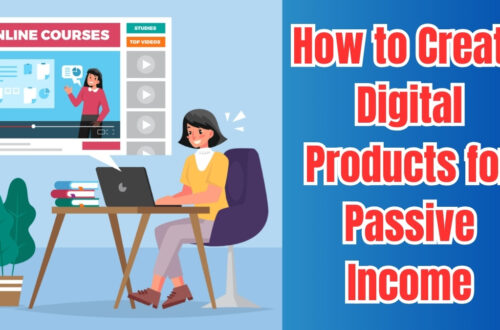
Top Strategies for Making Money with SEO
In the digital age, Search Engine Optimisation (SEO) has emerged as a crucial element for anyone looking to make money online. Whether you’re running a blog, an e-commerce store, or offering services, mastering SEO can lead to significant financial rewards. This article delves into the top strategies for making money with SEO, providing actionable insights to help you leverage the power of search engines to boost your income.
1. Understanding SEO: The Foundation of Online Success
Before diving into specific strategies, it’s essential to understand what SEO entails. At its core, SEO is the practice of optimising a website to rank higher in search engine results pages (SERPs). Higher rankings lead to more organic traffic, which can be monetised in various ways.
SEO can be broadly categorised into three main components:
- On-Page SEO: This involves optimising the content on your website, including keywords, meta tags, headers, and internal links, to improve its visibility to search engines.
- Off-Page SEO: This focuses on building backlinks from other reputable websites, which signal to search engines that your content is authoritative and trustworthy.
- Technical SEO: This includes optimising your website’s infrastructure, such as improving site speed, mobile-friendliness, and ensuring that search engines can easily crawl and index your content.
Looking for genuine ways to get paid for your writing? PaidOnlineWritingJobs.com offers a curated list of legitimate online writing jobs that fit various skill levels and interests. Whether you’re a beginner or a seasoned writer, this platform helps you find flexible opportunities to earn from home. Don’t wait—visit PaidOnlineWritingJobs.com today and start turning your words into income!

2. Building a Profitable Niche Website
One of the most popular ways to make money with SEO is by building a niche website. A niche website focuses on a specific topic or industry, attracting a targeted audience that is highly interested in that particular subject.
2.1 Selecting a Profitable Niche
Choosing the right niche is critical to your website’s success. Look for a niche that has high demand but low competition. Tools like Google Keyword Planner and Ahrefs can help you identify niches with lucrative opportunities. Consider factors such as:
- Audience size: Is there enough interest in the topic?
- Monetisation potential: Can the niche be monetised through ads, affiliate marketing, or product sales?
- Competition: How many other websites are targeting the same niche?
2.2 Conducting Keyword Research
Once you’ve selected a niche, the next step is to perform keyword research. Keywords are the phrases that people type into search engines when looking for information. By targeting high-traffic, low-competition keywords, you can drive more visitors to your site.
Use keyword research tools to identify primary keywords and long-tail keywords related to your niche. Long-tail keywords are longer, more specific phrases that often have lower competition, making them easier to rank for.

2.3 Creating High-Quality Content
Content is the backbone of any successful website. Focus on creating high-quality, valuable content that answers your audience’s questions and provides solutions to their problems. Make sure your content is optimised for SEO by incorporating keywords naturally, using relevant headers, and adding internal links to other pages on your site.
2.4 Monetising Your Niche Website
There are several ways to monetise a niche website:
- Ads: Display ads on your website through platforms like Google AdSense. You’ll earn money each time a visitor clicks on an ad.
- Affiliate Marketing: Promote products or services related to your niche and earn a commission for each sale made through your referral links.
- Selling Products: Create and sell digital or physical products that align with your niche.
3. Leveraging Affiliate Marketing
Affiliate marketing is a popular way to make money online by promoting other people’s products or services. When someone makes a purchase through your affiliate link, you earn a commission.
3.1 Finding the Right Affiliate Programs
To succeed in affiliate marketing, it’s essential to choose the right affiliate programs. Look for programs that offer high commissions, have a good reputation, and are relevant to your niche. Websites like ShareASale, CJ Affiliate, and Amazon Associates are great places to find affiliate programs.
3.2 Creating SEO-Friendly Content
Content plays a significant role in affiliate marketing success. Create SEO-optimised content that naturally incorporates your affiliate links. This could be in the form of product reviews, how-to guides, or comparison articles. Make sure your content is informative, engaging, and provides value to your readers.

3.3 Increasing Traffic and Conversions
To maximise your earnings, you need to drive traffic to your affiliate content and convert that traffic into sales. Use SEO strategies to improve your rankings in search engines and attract more visitors. Additionally, consider implementing conversion rate optimisation (CRO) techniques to increase the likelihood that visitors will click on your affiliate links and make a purchase.
4. Offering SEO Services
If you’re skilled in SEO, offering SEO services is a lucrative way to make money. Many businesses are willing to pay for expertise in improving their search engine rankings and driving more organic traffic.
4.1 Becoming an SEO Consultant or Freelancer
As an SEO consultant or freelancer, you can offer services such as:
- SEO Audits: Analyse a website’s current SEO performance and provide recommendations for improvement.
- Keyword Research: Identify high-potential keywords that can drive targeted traffic to a website.
- Link Building: Build high-quality backlinks to improve a website’s authority and search engine rankings.
- Content Optimisation: Optimise website content to ensure it’s aligned with SEO best practices.

4.2 Attracting Clients
To attract clients, you need to showcase your expertise and results. Start by building a portfolio that highlights your past work and the results you’ve achieved for other clients. Use case studies, testimonials, and data to demonstrate your effectiveness.
Networking is also essential. Attend industry events, join online communities, and use platforms like LinkedIn to connect with potential clients. Offering free consultations or SEO audits can also be an effective way to attract clients and demonstrate your value.
4.3 Scaling Your SEO Business
As your client base grows, consider scaling your business by offering additional services, hiring a team, or creating digital products such as courses or eBooks. You can also explore white-label SEO services, where you provide SEO services to other agencies that then resell them under their brand.
5. Creating and Selling Digital Products
Digital products are an excellent way to make money online, especially if you have expertise in a particular area. Digital products can include eBooks, online courses, SEO tools, templates, and more.
5.1 Identifying Opportunities
Start by identifying what digital products would be valuable to your target audience. Conduct market research to understand their needs and pain points. Consider creating products that solve specific problems or provide in-depth knowledge on a particular topic.
5.2 Optimising Product Pages for SEO
To ensure your digital products reach a broad audience, it’s crucial to optimise your product pages for search engines. Use relevant keywords in your product titles, descriptions, and meta tags. Additionally, create high-quality content around your products, such as blog posts or videos, to drive organic traffic to your product pages.
Reference: SEO 2024: Learn search engine optimization with smart internet marketing strategies

5.3 Driving Traffic Through Content Marketing
Content marketing is a powerful tool for promoting digital products. Create SEO-optimised content that educates your audience and positions your products as solutions to their problems. Share this content on social media, in email newsletters, and through guest posts on other websites to drive traffic to your product pages.
5.4 Building an Email List
Building an email list is an effective way to market your digital products and generate repeat sales. Offer a free lead magnet, such as a mini eBook or a checklist, in exchange for visitors’ email addresses. Use email marketing to nurture your audience and promote your digital products.
6. Monetising a Blog Through SEO
Blogging is a popular way to make money online, and when combined with SEO, it can be a highly profitable venture.
6.1 Choosing the Right Topics
To succeed in blogging, choose topics that attract high search volume and have monetisation potential. Use keyword research tools to identify topics that are relevant to your niche and have low competition.
6.2 Writing SEO-Optimised Blog Posts
Create high-quality, SEO-optimised blog posts that provide value to your readers. Incorporate relevant keywords naturally, use engaging headlines, and include internal and external links to boost your content’s SEO performance. Consider using multimedia elements, such as images and videos, to enhance the user experience.

6.3 Monetisation Options
There are several ways to monetise a blog:
- Ads: Sign up for ad networks like Google AdSense or Mediavine to display ads on your blog and earn money based on impressions or clicks.
- Sponsored Posts: Partner with brands to create sponsored content that promotes their products or services.
- Affiliate Links: Include affiliate links in your blog posts to earn commissions on sales generated through your referrals.
- Selling Products: Use your blog to promote and sell digital or physical products.
6.4 Building Backlinks
Backlinks are crucial for improving your blog’s domain authority and search engine rankings. Focus on creating high-quality content that others will want to link to, and reach out to other bloggers and websites in your niche for guest posting opportunities. Building strong relationships within your niche can lead to natural backlinks and increased traffic.
7. Running an E-commerce Store
SEO is vital for the success of an e-commerce store, as it helps attract organic traffic and drive sales.
7.1 Importance of SEO for Online Stores
With millions of products available online, standing out from the competition is essential. SEO helps your products rank higher in search engine results, increasing visibility and the likelihood of sales.
7.2 Optimising Product Pages
Optimise your product pages by including relevant keywords in product titles, descriptions, and meta tags. Use high-quality images and videos to showcase your products, and ensure that your website is mobile-friendly and fast-loading to provide a positive user experience.

7.3 Using Content Marketing to Promote Products
Content marketing is a powerful way to promote your products and improve your e-commerce store’s SEO. Create blog posts, videos, and social media content that highlights the benefits of your products and addresses common customer questions. Use internal links to direct readers to your product pages.
7.4 Leveraging User-Generated Content
User-generated content, such as reviews and testimonials, can significantly boost your e-commerce store’s SEO. Encourage customers to leave reviews and share their experiences with your products. This not only improves your website’s credibility but also provides valuable content for search engines to index.
Recommend Reading: Best Online Platforms to Sell Digital Products
8. Investing in SEO Tools and Resources
To succeed in SEO, investing in the right tools and resources is essential. These tools can help you analyse your website’s performance, conduct keyword research, and track your rankings.
8.1 Essential SEO Tools
Some essential SEO tools include:
- Ahrefs: A comprehensive SEO tool that helps with keyword research, backlink analysis, and competitor analysis.
- SEMrush: A powerful tool for keyword research, site audits, and tracking your website’s performance.
- Moz: An SEO software suite that includes keyword research, link building, and site audits.
- Google Analytics: A free tool that tracks your website’s traffic, user behaviour, and conversions.

8.2 Continuing Education and Keeping Up with Trends
SEO is constantly evolving, with search engine algorithms frequently updating. Stay informed about the latest trends and best practices by following industry blogs, attending webinars, and taking SEO courses. Investing in your education will help you stay ahead of the competition and ensure long-term success.
Making money with SEO is a viable and potentially lucrative opportunity for anyone willing to invest time and effort. Whether you’re building a niche website, leveraging affiliate marketing, offering SEO services, or running an e-commerce store, mastering SEO can significantly boost your income. By following the strategies outlined in this article, you can harness the power of SEO to achieve financial success online.
Ready to take control of your writing career and earn money from anywhere? With PaidOnlineWritingJobs.com, you gain access to verified writing opportunities that pay well and fit your schedule. Don’t miss out on the chance to turn your passion into profit. Get started today at PaidOnlineWritingJobs.com and write your way to success!
Recommend Reading: How to Start a Successful Podcast and Make Money





